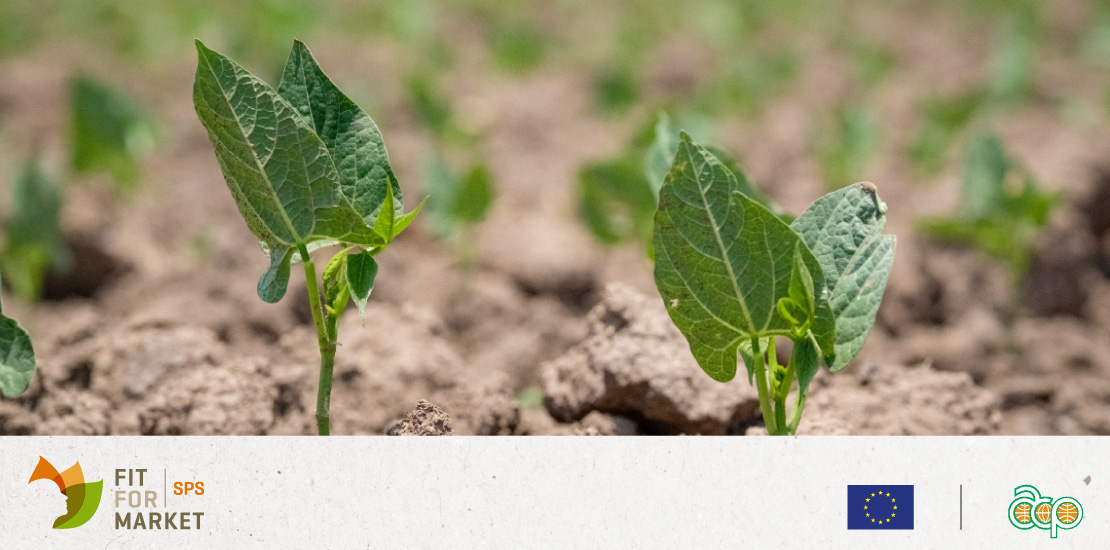Change of maximum residue limits (MRLs) from the CODEX ALIMENTARIUS
- 27/02/2023
- Posted by: Gaetan Dermien
- Category: ACP EN, News

A review of key Codex MRL changes in 2021-2022
Every year, the use of many plant protection products is affected by changes to permitted Maximum Residue Limits (MRLs). As a result of COVID, the 2020 review of MRLs by the CODEX committee on pesticide residue did not take place. In 2021, MRLs were changed for 68 active substances and recently published in the CODEX Pesticide MRL database.
These changes often have a direct impact on producers who may need to change production methods (Good Agricultural Practices – GAP) in order to comply with the new MRLs.
It is essential for producers to keep up-to-date with MRL changes, and to make any necessary adjustments in time to ensure compliance with the regulations, either by adapting the GAP, or by using alternative control methods. Any non-compliances can lead to the interception and destruction of goods, thus causing significant financial loss as well as reputational damage.
This News focuses on key CODEX MRL changes for the ACP horticultural sector. The changes presented in Table 2 include the setting of new MRLs, and changes to previous CODEX MRLs.
Table2 CODEX maximum residue level (MRL) changes in 2022 indicating the key substances and crops most affected (in green: raised MRLs; in red: lower MRLs).
| Active substance | Crop | Previous CODEX MRL [mg/kg] | New CODEX MRL [mg/kg] |
| Thiabendazole | Mangoes | 5 | 7 |
| Thiabendazole | Sweet potato | None | 9 |
| Tebuconazole | Mandarins | None | 0,7 |
| Tebuconazole | Oranges | None | 0,4 |
| Pyriproxyfen | Mangoes | None | 0,02 |
| Fosetyl-aluminium | Broccoli | None | 0,2 |
| Fosetyl-aluminium | Cauliflower | None | 0,2 |
| Fosetyl-aluminium | Head cabbages | None | 0,2 |
| Fosetyl-aluminium | Other flowering brassica | None | 0,2 |
| Fosetyl-aluminium | Other head brassica | None | 15 |
| Fosetyl-aluminium | Pineapple | None | 15 |
| Metconazole | Banana | None | 0,1 |
‘Key CODEX MRL changes’ refer here to MRLs changes affecting active substances registered in one or more ACP countries for use on horticultural crops that are frequently exported regionally or internationally. While COLEAD makes every effort to provide comprehensive information about relevant regulatory changes, it is possible that some PPPs or crops relevant to you are not included in our list of key substances/crops. We recommend therefore that you check the full report of the 52nd session of the CODEX committee on pesticide residues, which details all the changes in 2021, to make sure that you are aware of any other changes that could affect you. Alternatively, you can also consult the CODEX Pesticide MRL database which provides up-to-date values at all times.
E-GAP: COLEAD’s database that makes it easy for you to access the information you need
Keeping track of PPP authorizations and MRL changes is complex and time-consuming, but essential to ensure regulatory compliance.
COLEAD has responded to this need by developing E-GAP, a database on MRLs and good agricultural practices. E-GAP is a unique online tool that allows you to easily find up-to-date EU and Codex MRLs, and information available on the GAP to help ensure compliance under local conditions.
The COLEAD online database (E-GAP) is accessible to all its members and beneficiaries. To date, it is one of the few sources of this information specifically dedicated to the horticultural sector in ACP countries.
This tool provides information on the MRLs currently in force. It also provides the Good Agricultural Practices (dose rate, interval between treatments, pre-harvest intervals, etc.) that ensure compliance with these MRLs. Additional information such as the type of pesticide, the registration status of the active substance in the EU and in ACP countries, the classification recommended by the World Health Organization (WHO) and the resistance group is also provided.
The COLEAD database, E-GAP, is accessible with your login and password in the e-service section of our website: here.
If you wish to obtain further information or if you encounter any problems in using the database, please contact COLEAD at the following address : network@colead.link



